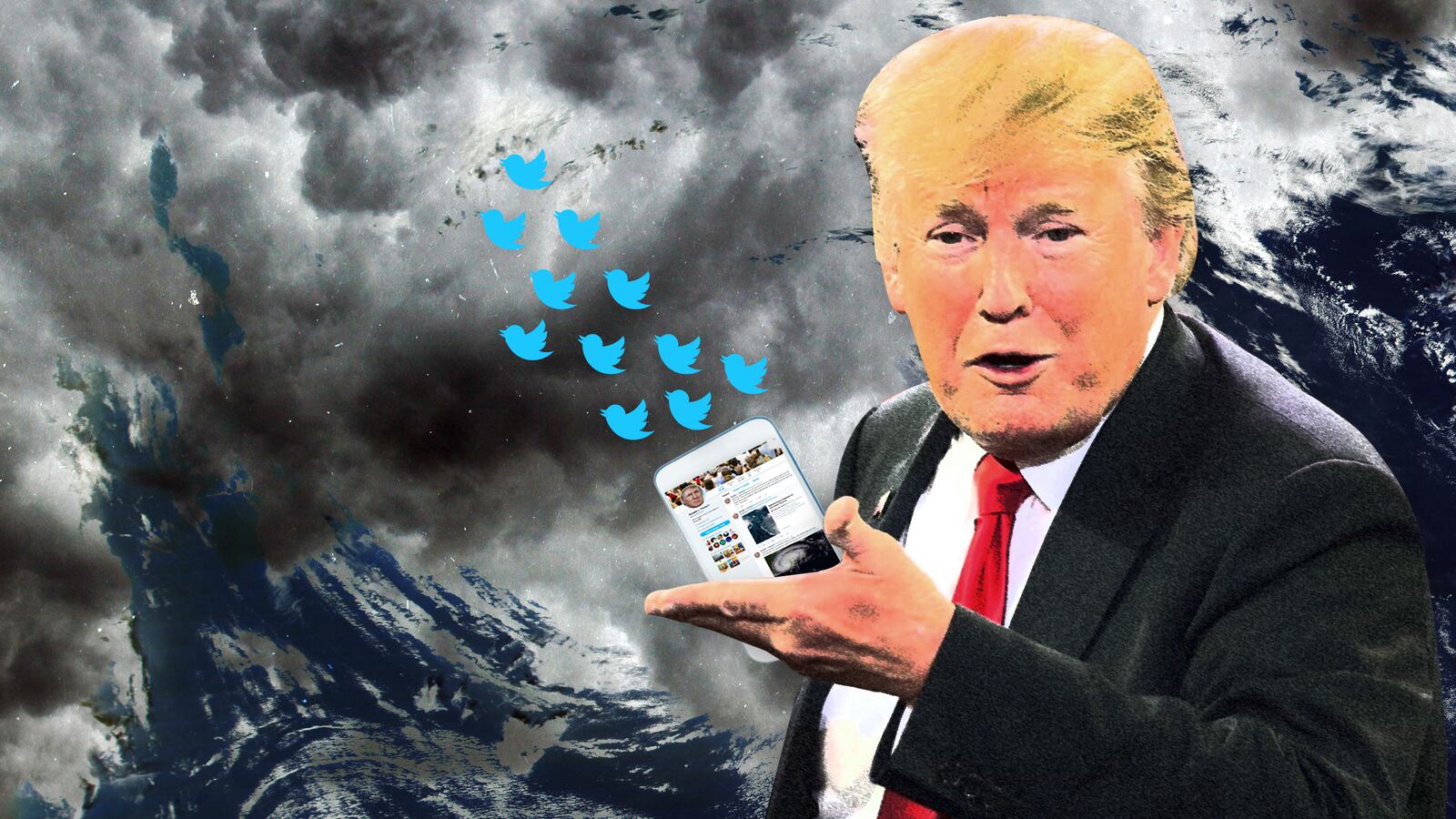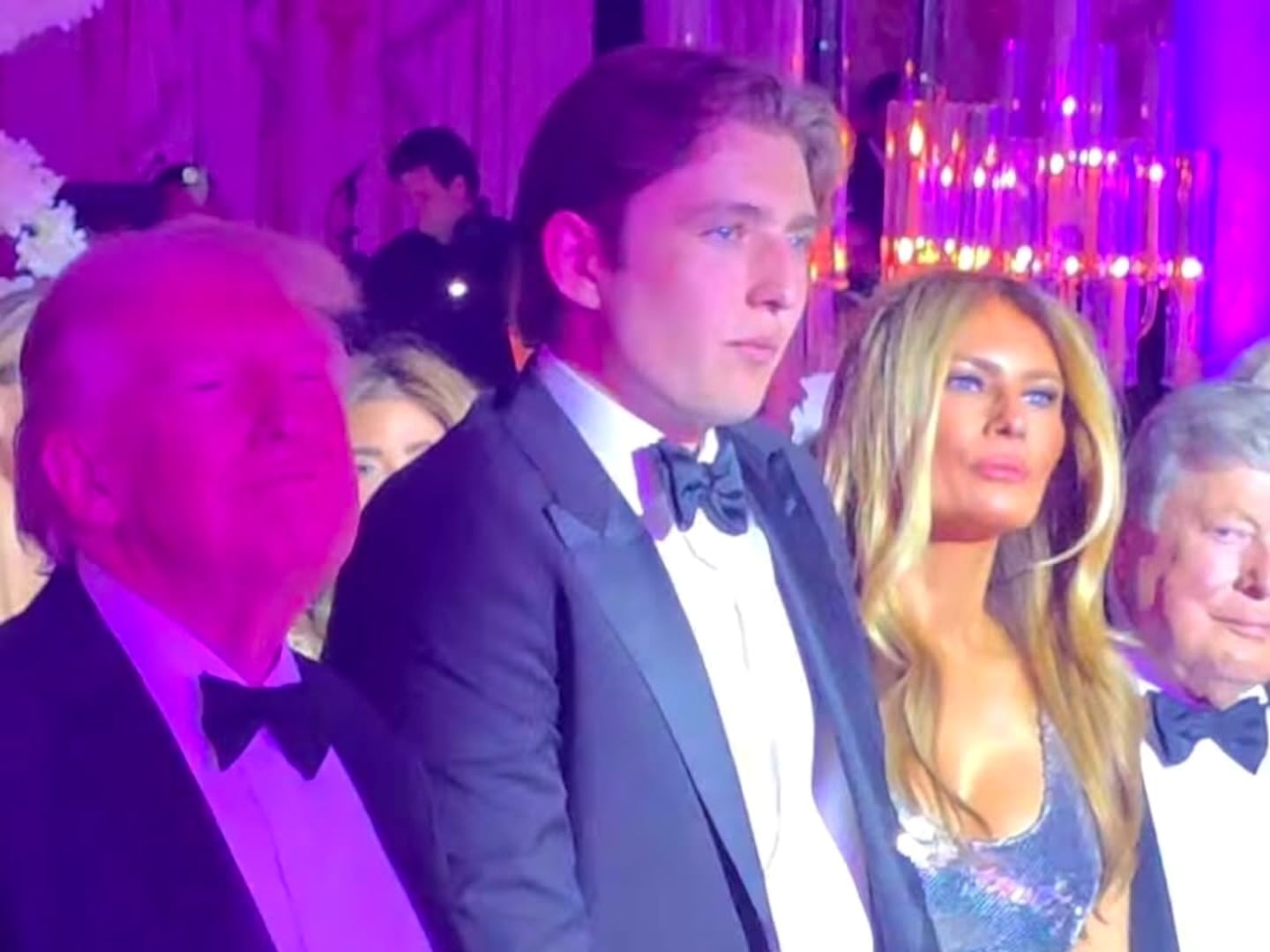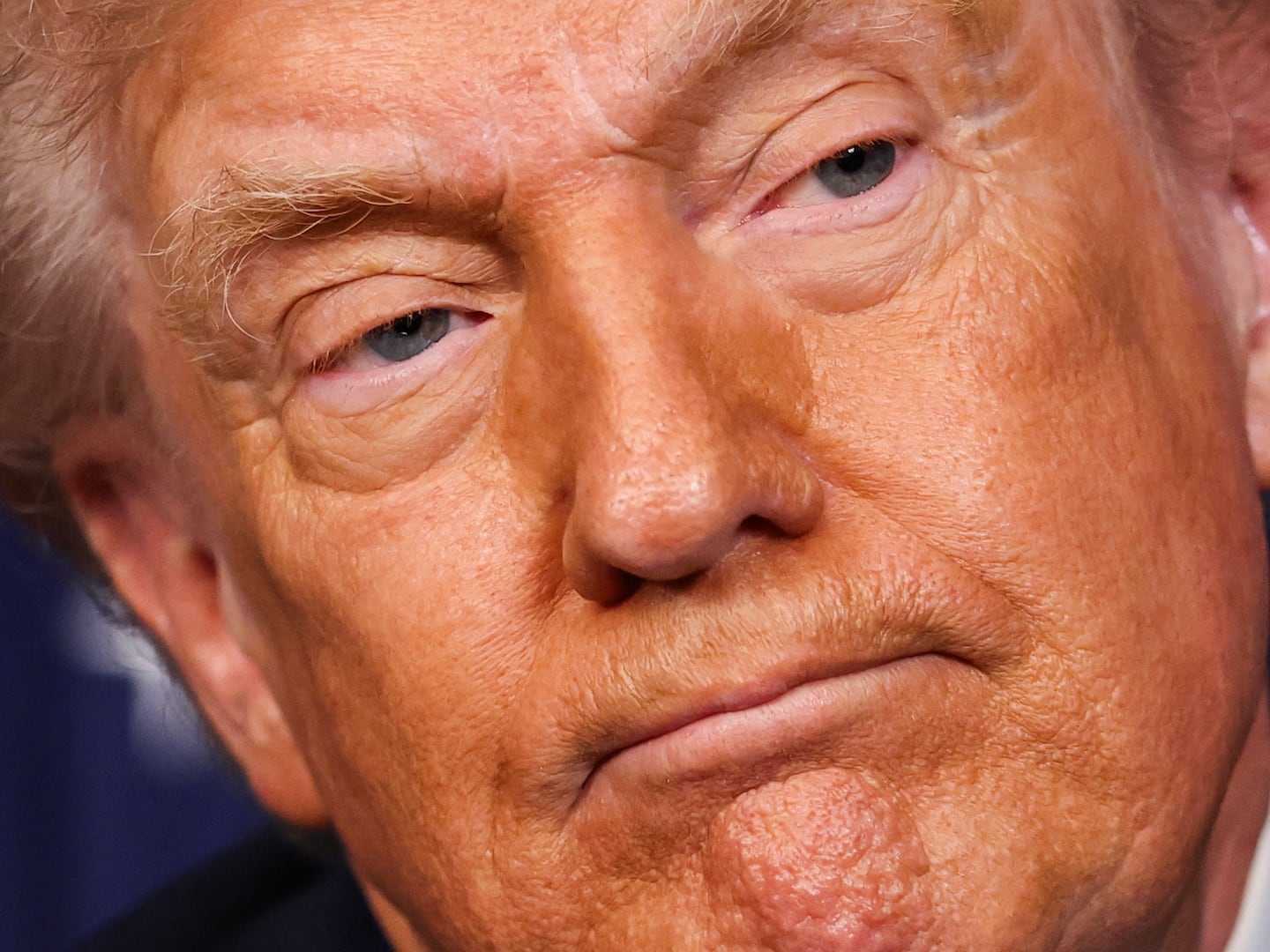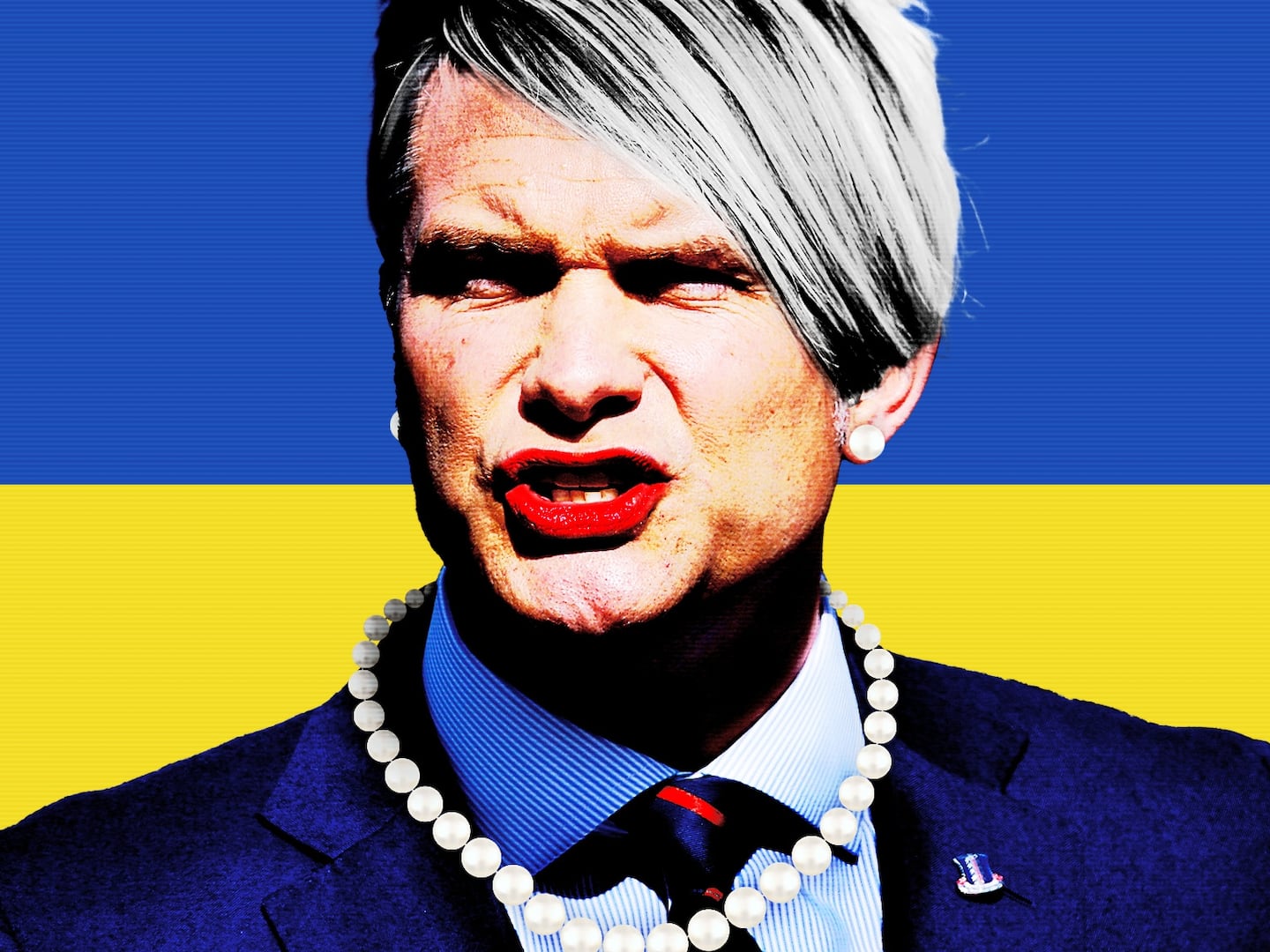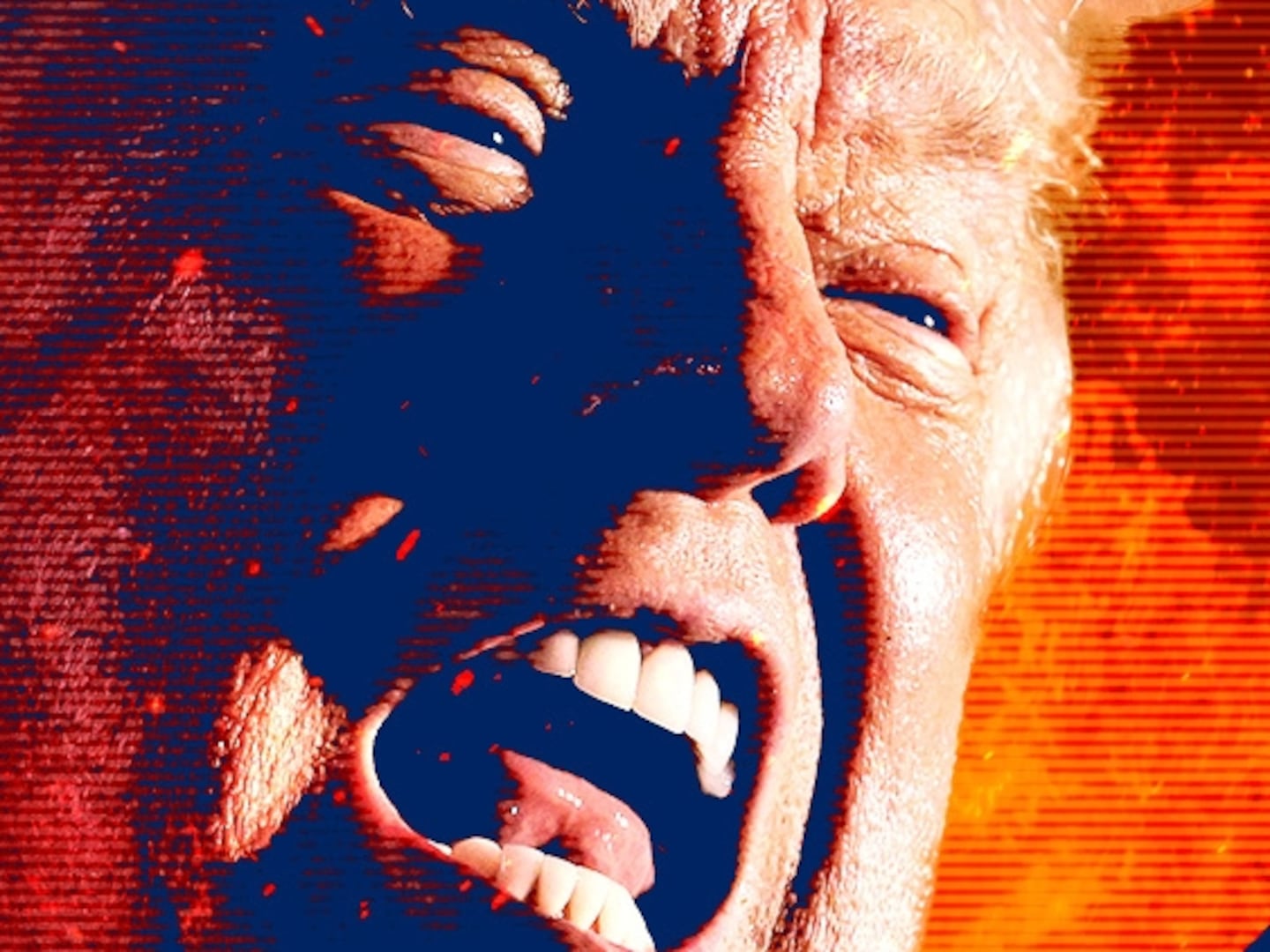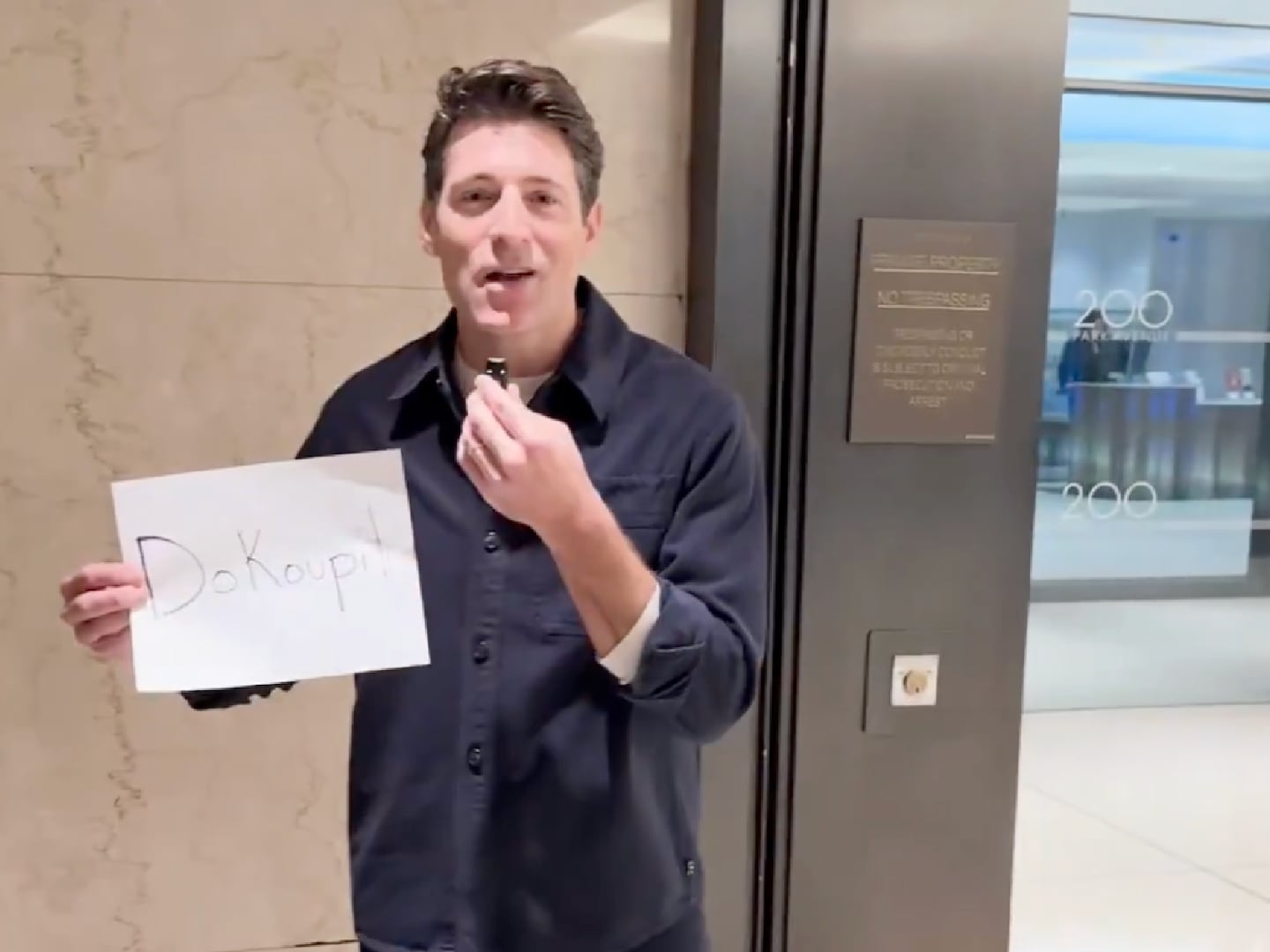As he prepares for one natural disaster and tries to spin his way out of another, President Donald Trump, aides and friends say, is guided by a singular obsession: never to have a hurricane dubbed his “Katrina.”
That obsession became painfully evident this week as Trump, in the midst of preparing for Hurricane Florence’s landfall, took time on Thursday morning to trumpet post-facto justifications of the federal government's response to Hurricane Maria, which devastated the island of Puerto Rico last year. In a series of tweets, he claimed—without any evidence—that the 3,000 or so deaths tied to that storm were an exaggerated count used by Democrats to make him look bad.
It read like a shocking bit of insensitivity from the White House just at the moment that it was preparing for another potentially deadly storm. But those familiar with Trump’s approach say he does in fact care about the widespread devastation and loss of life that resulted from Maria and could potentially result from Florence—if for no other reason than he also has an intense fixation on managing public perception of his performance in these moments.
“Multiple times I’ve heard him talk about how you don’t want a Katrina moment,” recalled a former senior Trump White House official. “You can’t do anything about what weather is going to do, but you can certainly manage the response and the optics of what you’re doing in addition to the substance of what you’re doing.”
All presidents are aware of how their responses to natural disasters are perceived, in large part because history is littered with politicians whose careers were crippled by perceived inadequate responses. The most cautionary tale is that of George W. Bush, who infamously looked out the window of Air Force One as it flew over a ravaged New Orleans following Katrina’s landfall in 2005—a moment of perceived indifference that dogged the rest of his presidency.
But no president has taken image-obsession to the level of Trump. The famously cable news-addicted president closely followed how his administration’s response to the past storms was graded and he’s taken steps to make sure he scores high on the upcoming one.
As Florence bears down on the American Southeast, Trump has hit the phones, calling up senators and governors and mayors to assure them that the federal government will make all necessary resources available to deal with and recover from what is expected to be a devastating natural disaster.
The phone calls began early this week—a spokesperson for Virginia Gov. Ralph Northam told The Daily Beast that he spoke with Trump on Monday—and they are vintage Trump storm prep activity, the former White House official said.
“He’s gonna start by talking to the political leaders because when they’re asked if they’ve talked to him he wants them to be able to say yes,” the source explained. “It’s one of the times that he is really dialed into federal government interaction with state and local leaders.”
During similar disasters in the past, the official added, Trump has called for regular updates in the Oval Office on what the federal government is doing in affected areas.
To a certain degree, coordinating between agencies and touching base with state and local officials is the role that all presidents play when hurricanes hit. “They’re kind of like the conductor,” said Alyssa Mastromonaco, President Barack Obama’s former deputy chief of staff. “The thing everyone forgets is presidents shouldn’t know every single thing to do but the people who work for him should.”
But for Trump, sources say, the briefings are rooted in large measure in fear over public perception. “He always wants to be able to say FEMA’s doing this and that.”
That concern isn’t unspoken in the White House—he makes his determination to avoid a “heckuva job” moment known to staffers in the West Wing. Trump himself noted at the time that the Bush administration’s response to Katrina, and in particular FEMA’s handling of it under then-director Michael Brown, dealt a major hit to the administration’s public standing.
“The credibility of the Bush administration now is at an all-time low. And when you look at what's happened in New Orleans, when you look at the head of FEMA, who I guess was thrown out of a horse association, it was sort of interesting,” he said in a Fox News interview weeks after the storm hit.
By contrast, he felt that Hurricane Sandy, in October 2012, gave Obama the type of political showcase he needed boost his electoral bid—much to Trump’s chagrin.
But for all his fretting over the optics of a hurricane response, Trump’s handling of the aftermath of Maria received universally horrid reviews. Large swaths of Puerto Rico remained without electricity for months. Hundreds of thousands of water bottles went undistributed. Celebrity chefs were forced to prepare meals for hungry Puerto Ricans because the government couldn’t. And the one time Trump did touch down on the island, the most indelible image he left was of him tossing rolls of paper towels into a crowd.
In late August, a study commissioned and accepted by the government of Puerto Rico put a grim data point on the aftermath, estimating that 2,975 deaths could be properly attributed to the storm and the failures in response. But instead of acknowledging mistakes, Trump, on Thursday morning, questioned the legitimacy of the findings.
Sources close to the president say that his tweets were the product of a growing anger over media coverage in recent weeks spotlighting the Maria-related body count. In private, these sources say, Trump has insisted that he and his administration did a superb job in relief efforts responding to the hurricanes, and that his enemies are simply trying to humiliate him.
To accommodate that insistence, White House officials scrambled Thursday morning to hash out an explanation that would supposedly “clarify” —but not correct—Trump’s allegations over death tolls. But even one West Wing official acknowledged that the president had been “tone deaf,” at least. And even close defenders and longtime friends expressed reservations about what he’d said.
“I personally think it’s a good approach to admit failures and mistakes, but I don’t think that necessarily reflects poorly on [President Trump],” Christopher Ruddy, the Newsmax CEO and a Trump confidant, told The Daily Beast on Thursday morning. “I know everybody blames him for everything, I’m surprised he’s not blamed for climate change, though I’m sure he will be soon... In The Art of the Deal, he writes about how he exaggerates and overstates things as a rhetorical device. And I think that has worked very well over his career. “
“I do think, as I’ve said before, that he needs a review process with his staff before the tweet goes out, [to check] for factual information,” Ruddy added, “because when he tweets it’s not just a personal account, he’s tweeting from the office of the president.”
